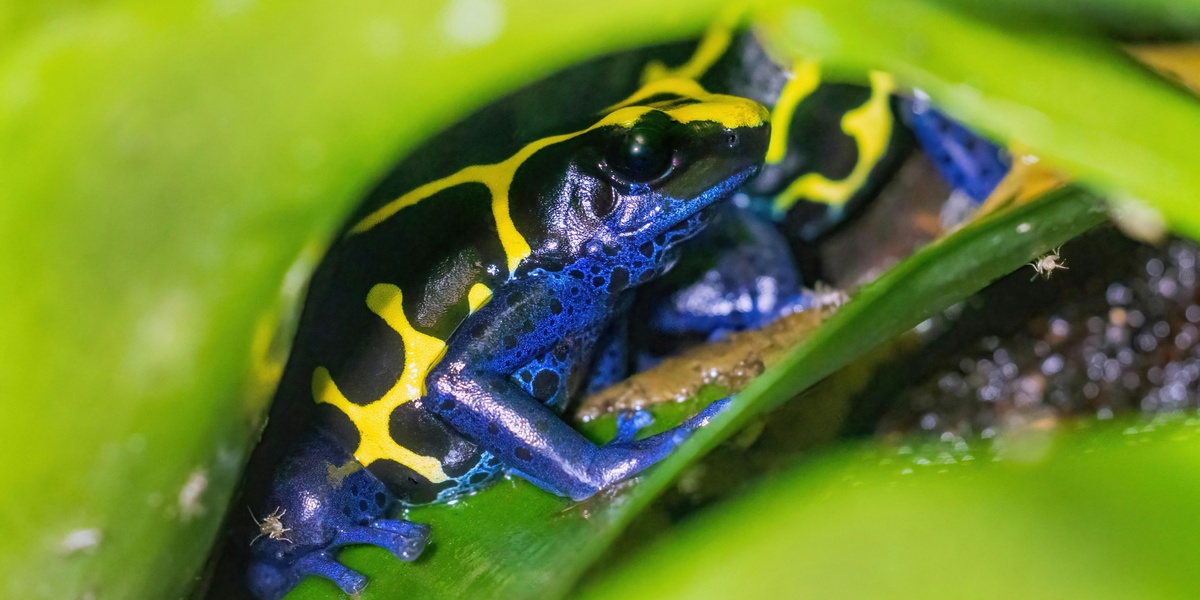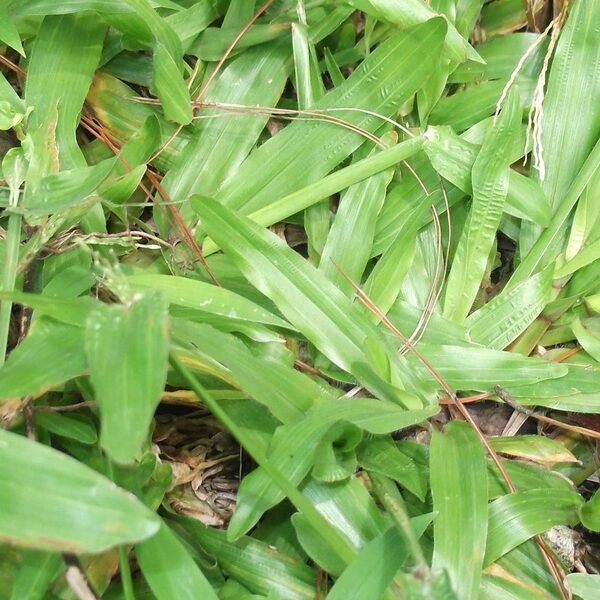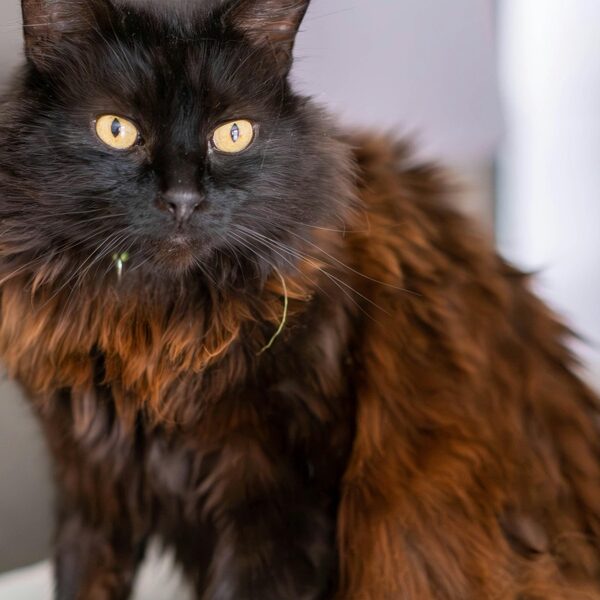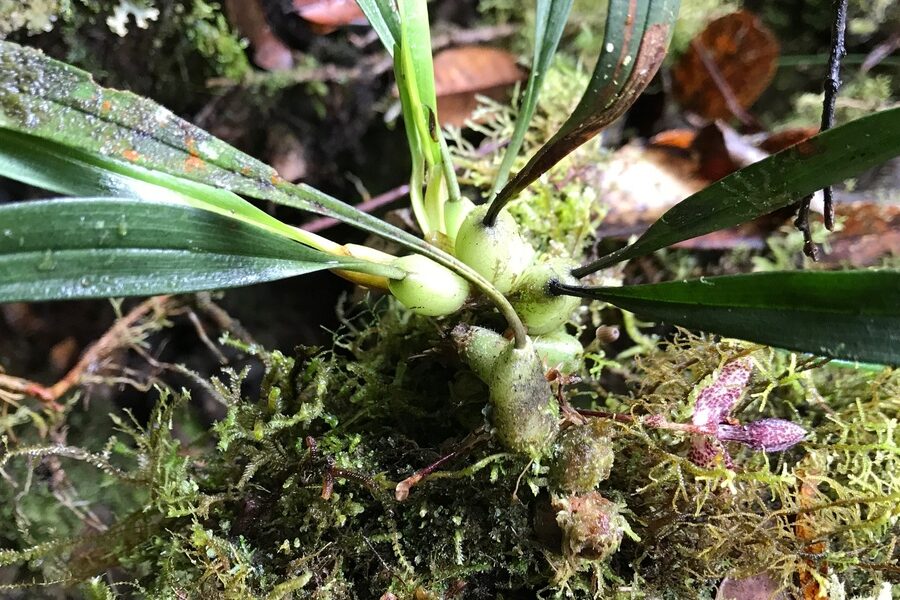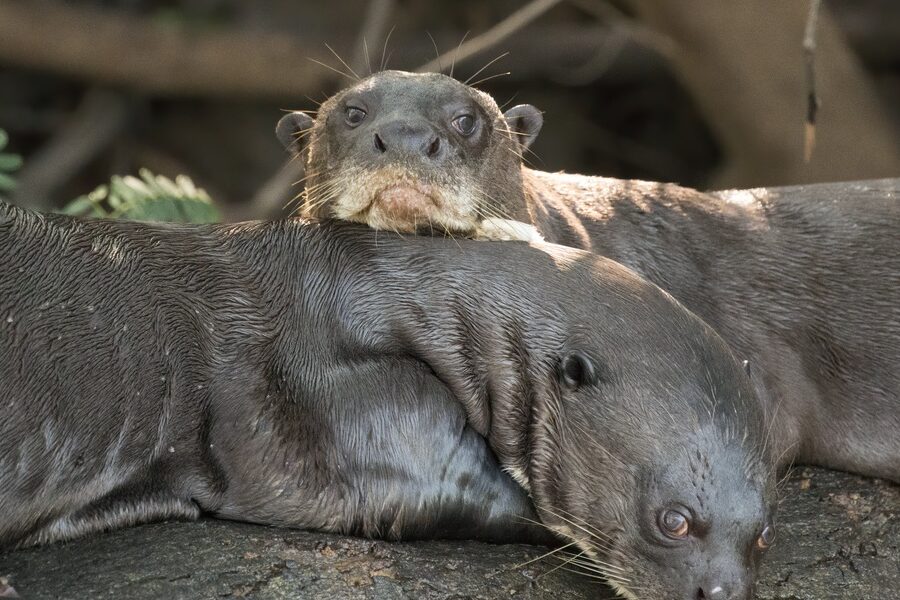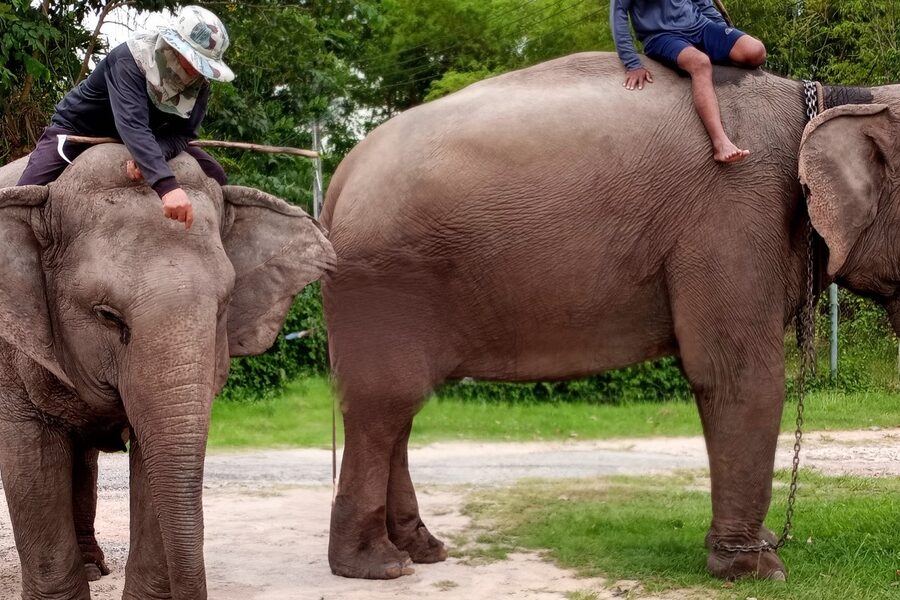Nature’s palette is boundless, painting wonders in every size and corner of the globe. While majestic beasts often capture our attention, there’s an equally enchanting world of miniature marvels whose vibrant colors rival any grand display. These tiny inhabitants prove that beauty and breathtaking hues aren’t exclusive to the large.
In this collection, we dive into the fascinating realm of 22 smallest colorful animals, ranging from the minuscule, iridescent Bee Hummingbird to the vividly alarming Strawberry Poison Dart Frog. For each captivating creature, you’ll find key details organized by its Scientific Name, Avg Length (cm), and natural Habitat, all awaiting your discovery in the list below.
Why are some small animals so brightly colored?
The vibrant colors seen in many small animals serve various crucial purposes, often linked to survival and reproduction. For some, like the Strawberry Poison Dart Frog, bright hues act as aposematic coloration – a stark warning to predators that they are toxic or unpalatable. In other cases, brilliant plumage or skin patterns are used to attract mates, signal health, or even provide camouflage in richly diverse environments, blending into equally colorful surroundings.
Do all colorful small animals pose a danger?
Not at all. While some vibrantly colored small animals, such as certain frogs or insects, use their bright appearance as a warning sign of toxicity or venom, many others are completely harmless. Their striking colors might be for attracting mates, blending into a colorful habitat, or simply a byproduct of their unique biology. It’s important to appreciate the diversity of nature without assuming all colorful creatures are dangerous.
Smallest Colorful Animals
| Common Name | Scientific Name | Avg Length (cm) | Habitat |
|---|---|---|---|
| Peacock Spider | Maratus volans | 0.5 | Australian bushland and gardens |
| Bee Hummingbird | Mellisuga helenae | 5.7 | Dense forests and woodlands in Cuba |
| Strawberry Poison Dart Frog | Oophaga pumilio | 2 | Rainforests of Central America |
| Electric Blue Day Gecko | Lygodactylus williamsi | 8 | A tiny, 4 sq km patch of forest in Tanzania |
| Mandarinfish | Synchiropus splendidus | 6 | Sheltered lagoons and coral reefs of the Pacific Ocean |
| Orchid Mantis | Hymenopus coronatus | 6 | Rainforests of Southeast Asia |
| Golden Tortoise Beetle | Charidotella sexpunctata | 0.6 | Gardens and fields in the Americas |
| Rosy Maple Moth | Dryocampa rubicunda | 4 | Deciduous forests of eastern North America |
| Cuckoo Wasp | Chrysididae family | 1.2 | Worldwide in sunny, dry locations |
| Leaf Sheep Nudibranch | Costasiella kuroshimae | 0.5 | Coastal waters near Japan and the Philippines |
| Blue Glaucus | Glaucus atlanticus | 3 | Open ocean, floating on the surface of temperate waters |
| Painted Bunting | Passerina ciris | 13 | Scrubby habitats in the southern United States and Mexico |
| Spiny Orb-Weaver Spider | Gasteracantha cancriformis | 1 | Woodlands and gardens from the southern US to South America |
| Gouldian Finch | Erythrura gouldiae | 13 | Savanna woodlands of northern Australia |
| Christmas Tree Worm | Spirobranchus giganteus | 4 | Tropical coral reefs worldwide |
| Harlequin Shrimp | Hymenocera picta | 5 | Indo-Pacific coral reefs |
| Malachite Kingfisher | Corythornis cristatus | 13 | Wetlands and riversides across sub-Saharan Africa |
| Sexy Shrimp | Thor amboinensis | 1.3 | Indo-Pacific coral reefs, often on anemones |
| Blue Poison Dart Frog | Dendrobates tinctorius ‘azureus’ | 4 | Savannas of southern Suriname |
| Emerald Jewel Wasp | Ampulex compressa | 2.2 | Tropical regions of South Asia, Africa, and the Pacific |
| Ebony Jewelwing | Calopteryx maculata | 4.5 | Wooded streams in eastern North America |
| Blue-tailed Skink | Cryptoblepharus egeriae | 7 | Christmas Island, Australia |
Images and Descriptions
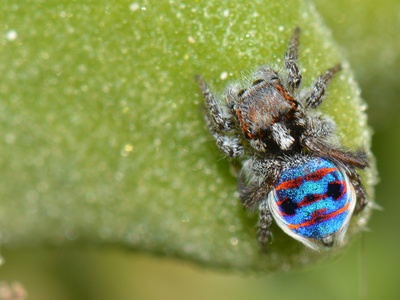
Peacock Spider
This tiny jumping spider is famous for the male’s spectacularly colored, iridescent abdominal flap that he raises and waves in a complex courtship dance to impress females.
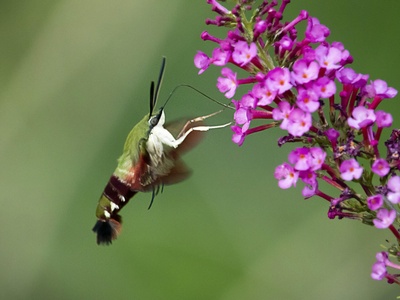
Bee Hummingbird
Officially the world’s smallest bird, this tiny marvel weighs less than a dime. The male has a fiery, iridescent red-pink throat that gleams like a jewel in the sunlight.
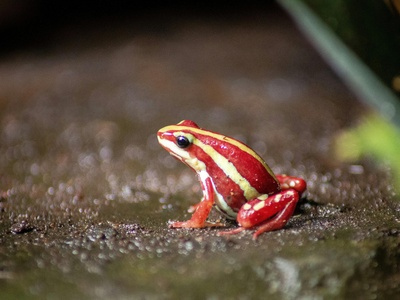
Strawberry Poison Dart Frog
A tiny amphibian with a giant personality, its brilliant red or orange body and blue legs warn predators of its toxicity, which it gets from its diet of ants and mites.
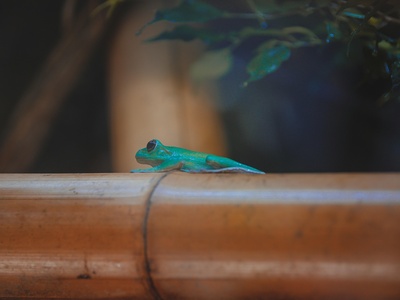
Electric Blue Day Gecko
This critically endangered gecko is known for the male’s breathtaking, vibrant electric-blue color. They are active during the day, making their brilliant color highly visible.
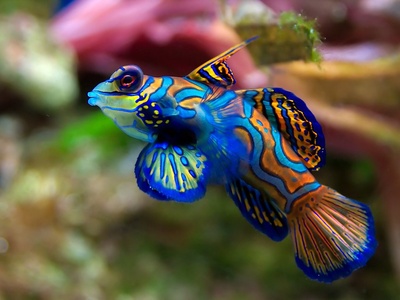
Mandarinfish
Often called the most beautiful fish in the world, the Mandarinfish boasts a psychedelic pattern of wavy blue, green, and orange lines over its tiny body.
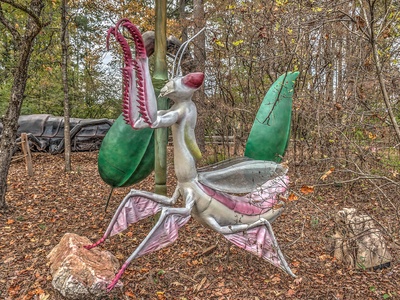
Orchid Mantis
A master of camouflage, this small predator perfectly mimics an orchid flower with its delicate white and pink coloration, allowing it to ambush unsuspecting prey.
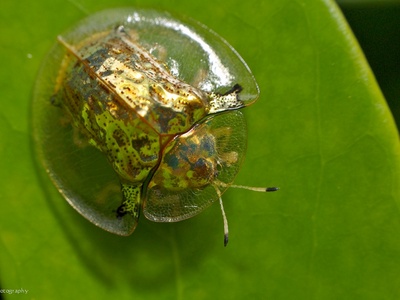
Golden Tortoise Beetle
This tiny beetle looks like a living droplet of liquid gold. It can change its color from brilliant metallic gold to a dull reddish-brown when it feels threatened.
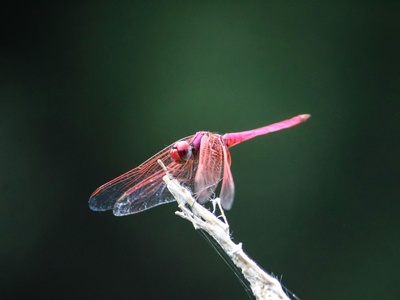
Rosy Maple Moth
With its fuzzy body and stunning bright yellow and pink wings, this small moth looks more like a piece of candy or a flying stuffed animal than an insect.
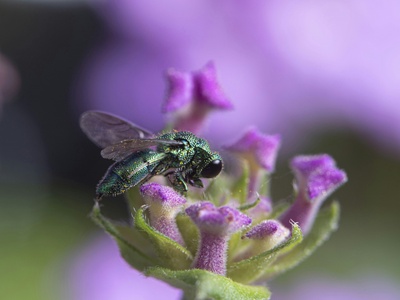
Cuckoo Wasp
Also known as jewel wasps, these insects have a stunning, sculpted body that shines with metallic blues, greens, and reds, making them look like tiny flying gems.
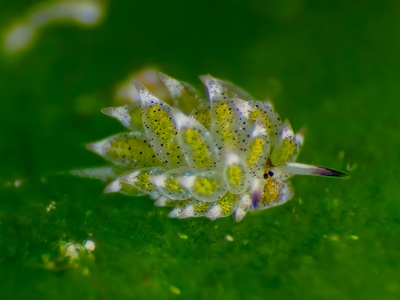
Leaf Sheep Nudibranch
This microscopic sea slug looks like a cartoon sheep with its beady eyes and green, leaf-like cerata. It’s one of the only animals that can photosynthesize by stealing chloroplasts from algae.
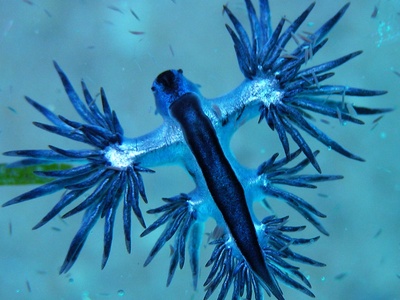
Blue Glaucus
Also known as the blue dragon, this otherworldly sea slug floats upside down on the ocean’s surface. Its brilliant blue and silver coloring provides camouflage against the sky and water.
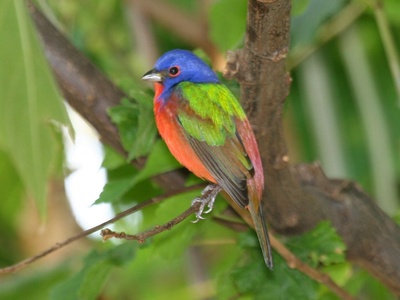
Painted Bunting
The male Painted Bunting is often called the most beautiful bird in North America due to its stunning plumage, a vibrant patchwork of blue, green, yellow, and red.
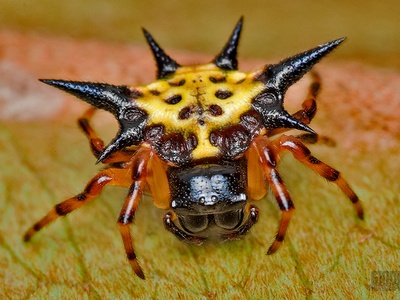
Spiny Orb-Weaver Spider
This small spider has a hard, crab-like abdomen that comes in bright yellow, red, or white, accented with striking black spots and six prominent red or black spines.
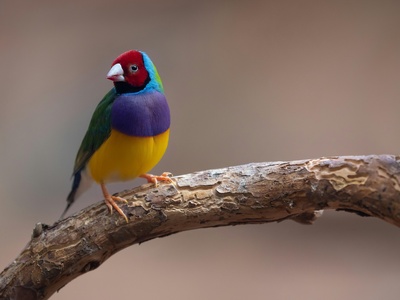
Gouldian Finch
A spectacular sight, this small finch has a vibrant purple chest, a yellow belly, a green back, and a head that can be red, black, or yellow, making it a flying rainbow.
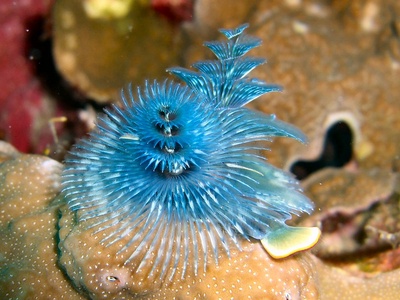
Christmas Tree Worm
This marine worm lives in a tube embedded in coral. Its most visible features are two magnificent, brightly colored spiral crowns that look just like tiny Christmas trees.
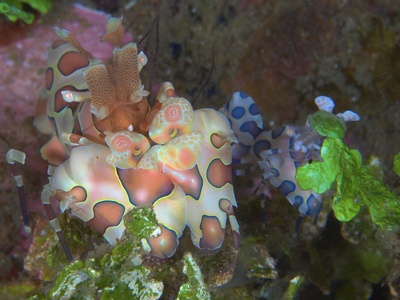
Harlequin Shrimp
An elegant and ornate crustacean, the Harlequin Shrimp is covered in beautiful, soft-edged purple or blue spots on a creamy white body. They hunt and eat sea stars.
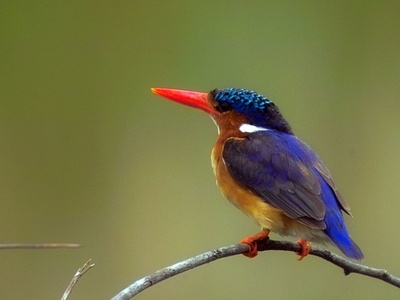
Malachite Kingfisher
A tiny but brilliant jewel of a bird, it has a short crest and dazzling, metallic blue plumage on its back and head, contrasted with a warm, rufous-colored belly.
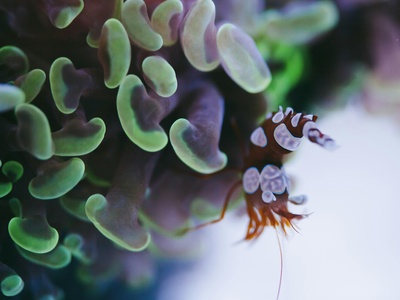
Sexy Shrimp
Named for its unique habit of constantly bobbing its abdomen, this tiny shrimp has a striking pattern of large white spots outlined in blue on a reddish-brown body.
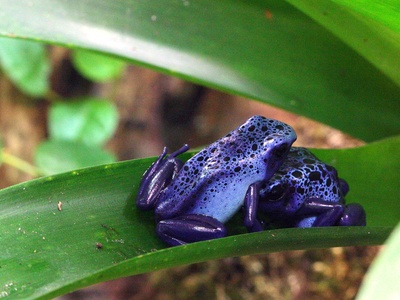
Blue Poison Dart Frog
One of the most iconic poison dart frogs, its skin is a brilliant, deep azure blue, covered in a unique pattern of black spots that warns predators of its potent toxins.
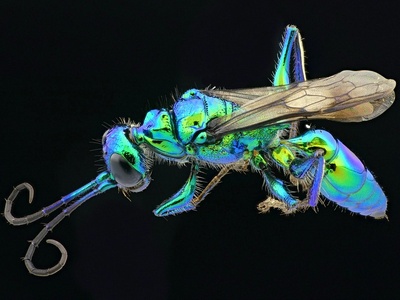
Emerald Jewel Wasp
This wasp has a brilliant, metallic blue-green body that shimmers in the light. It’s known for its gruesome but fascinating practice of zombifying cockroaches for its young.
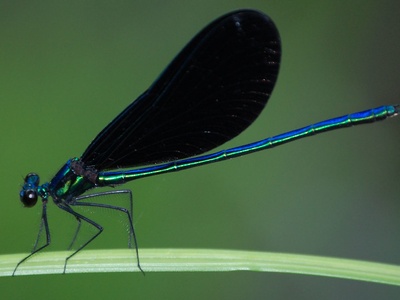
Ebony Jewelwing
A stunning damselfly, the male has a brilliant metallic blue-green body that contrasts beautifully with its solid, velvety-black wings, creating a striking visual as it flutters.
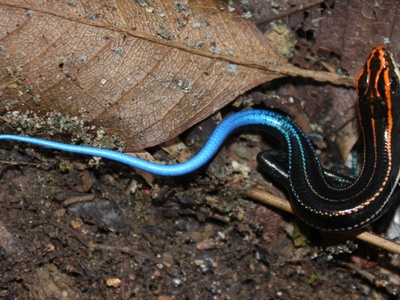
Blue-tailed Skink
While the adults are more subdued, the juvenile skinks are incredibly vibrant, with black and yellow body stripes and a tail of shocking, iridescent electric blue to distract predators.
